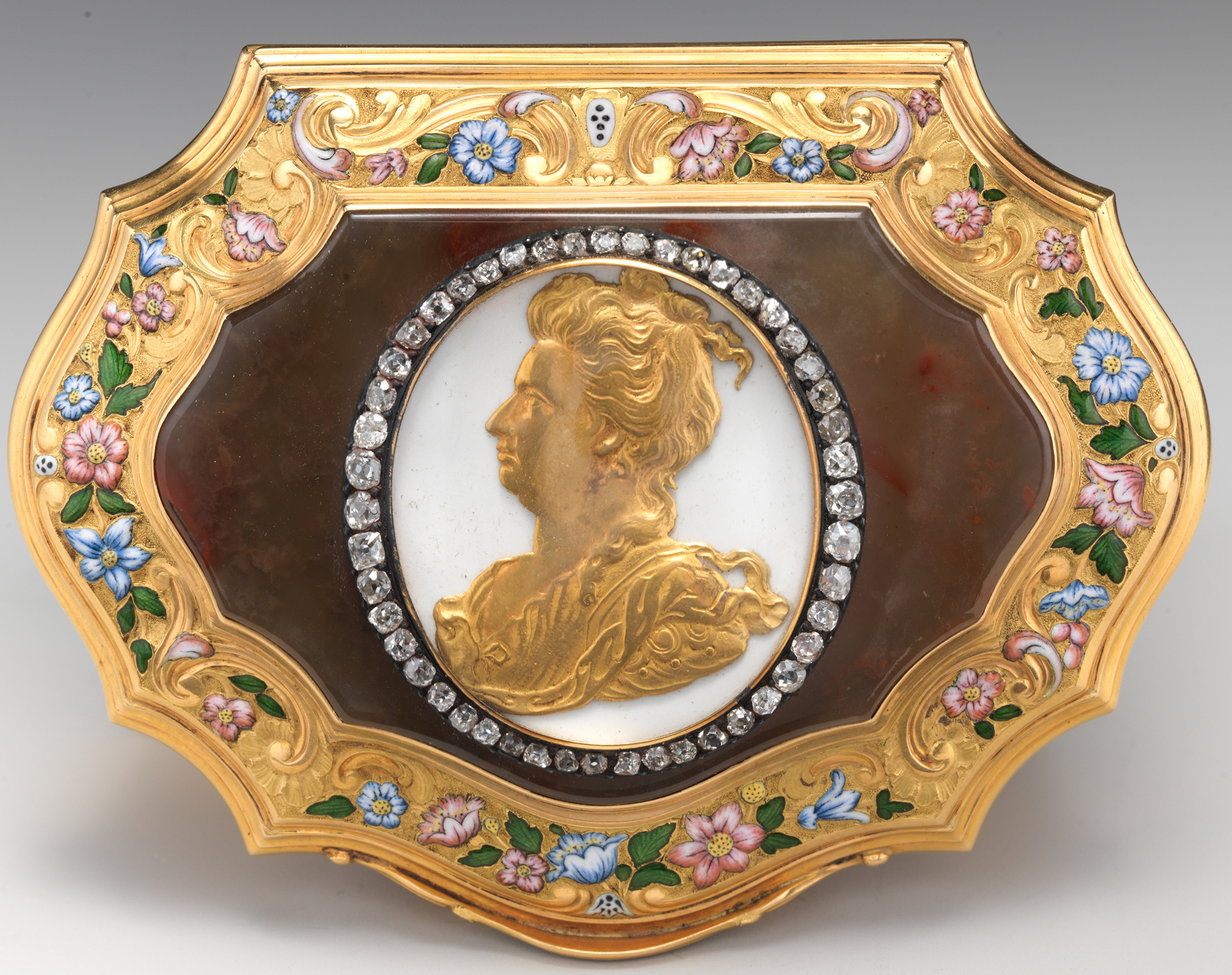
Snuffbox with portrait of Queen Anne, c. 1757. The Metropolitan Museum of Art, Gift of J. Pierpont Morgan, 1917.
• Looking at miscarriages from the nineteenth century: “Historian Shannon Withycombe expected to find grief. Instead, she encountered startling admissions of joy at the knowledge of pregnancy loss, with women writing sentences like: ‘I am happy again’; ‘O Bliss, O Rapture unforeseen!’ ” (Slate)
• Advice for how to act (or how not to act) if you plan on visiting Elizabethan England or the Gilded Age. (The New York Times Book Review)
• The history behind the movie The Favourite. (Jezebel)
• Martha Brookes Hutcheson “saw the potential for landscape design to serve a social agenda in the Progressive Era—to improve lives and conserve natural resources. One of the first women trained at university level in the emerging profession of landscape architecture, she was a founding member of the Woman’s Land Army during World War I, and her experience with a group of WLA ‘farmerettes’ at her home, Merchiston Farm, in Gladstone, New Jersey, convinced her of the impact landscape architects could have by increasing agricultural productivity, improving soils and plant communities, and fostering women’s practical skills and economic autonomy.” (Places Journal)
• A history of the epithet racially-tinged: “The nadir of euphemism is surely a dead tie between the Associated Press’s 1964 description of ‘racially tinged explosions’ which were set off ‘near the recently desegregated campus of the University of Alabama’ and ‘across town near a Negro cafe’; and a 1953 Associated Press story that described the trial of two white men who kidnapped a black motorist and set him on fire as a ‘racially charged case.’ ” (Boston Review)
• Why do Americans eat three meals a day? (JSTOR Daily)
• The first women chiropractors. (Nursing Clio)
• This week in obituaries: Ricky Jay, the creator of SpongeBob Squarepants, one of the last survivors of the 1921 Tulsa Race Massacre, the King of Bolero, and a poet.